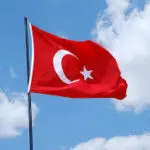Physical Address
304 North Cardinal St.
Dorchester Center, MA 02124
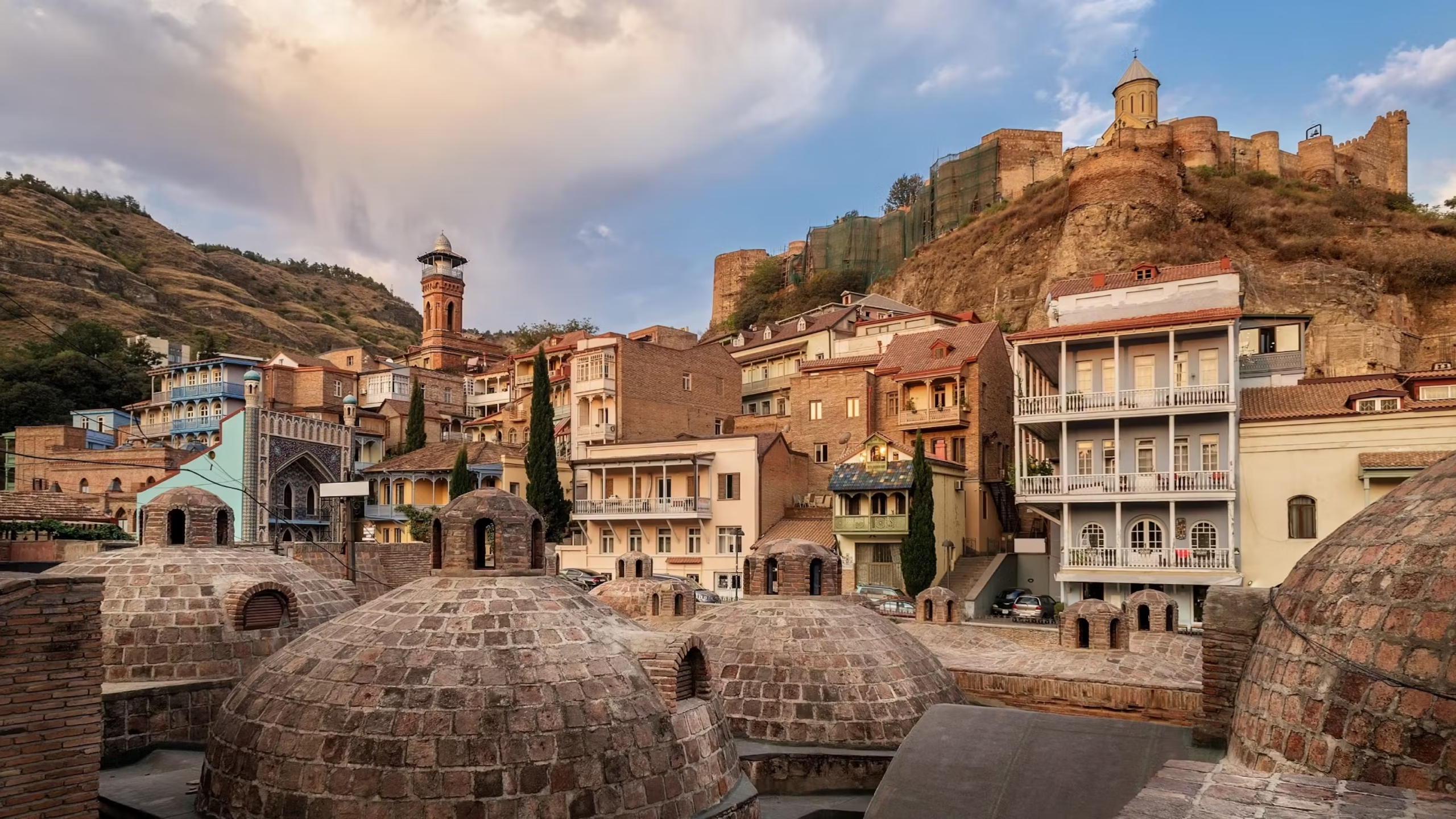
Unveiling a Hidden Paradise Between Europe and Asia
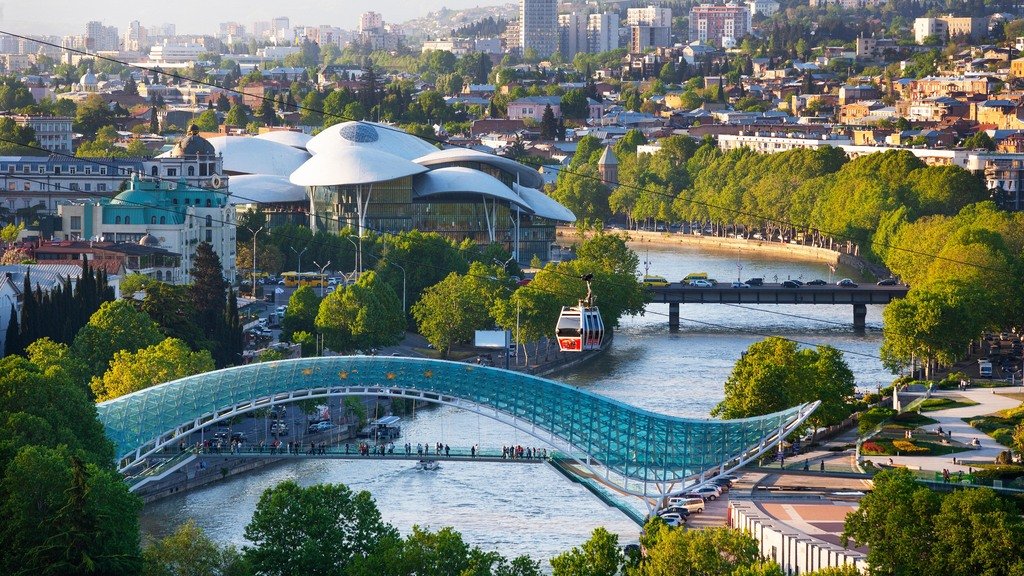
Tbilisi, Georgia
Exclusive content for travelgoeasy.net – All rights reserved
Have you ever yearned to discover a destination that perfectly balances ancient history with vibrant modernity? Tbilisi, Georgia’s captivating capital, offers exactly this magical blend. Nestled between Europe and Asia, this enchanting city remains one of travel’s best-kept secrets – a true hidden gem waiting for adventurous souls to explore its wonders.
The first time I stepped into Tbilisi’s cobblestone streets, the symphony of church bells echoing across the Mtkvari River valley instantly captivated me. This city doesn’t just display its 1,500-year history – it wraps you in it, while simultaneously embracing a creative, forward-looking spirit that’s palpable everywhere you turn.
As the warm Georgian sun bathed the colorful balconied houses in the Old Town, I couldn’t help but wonder: how had this extraordinary destination remained under the radar for so long? Positioned at the crossroads of Europe and Asia, Tbilisi offers an intoxicating blend of influences that create a truly unique urban tapestry.
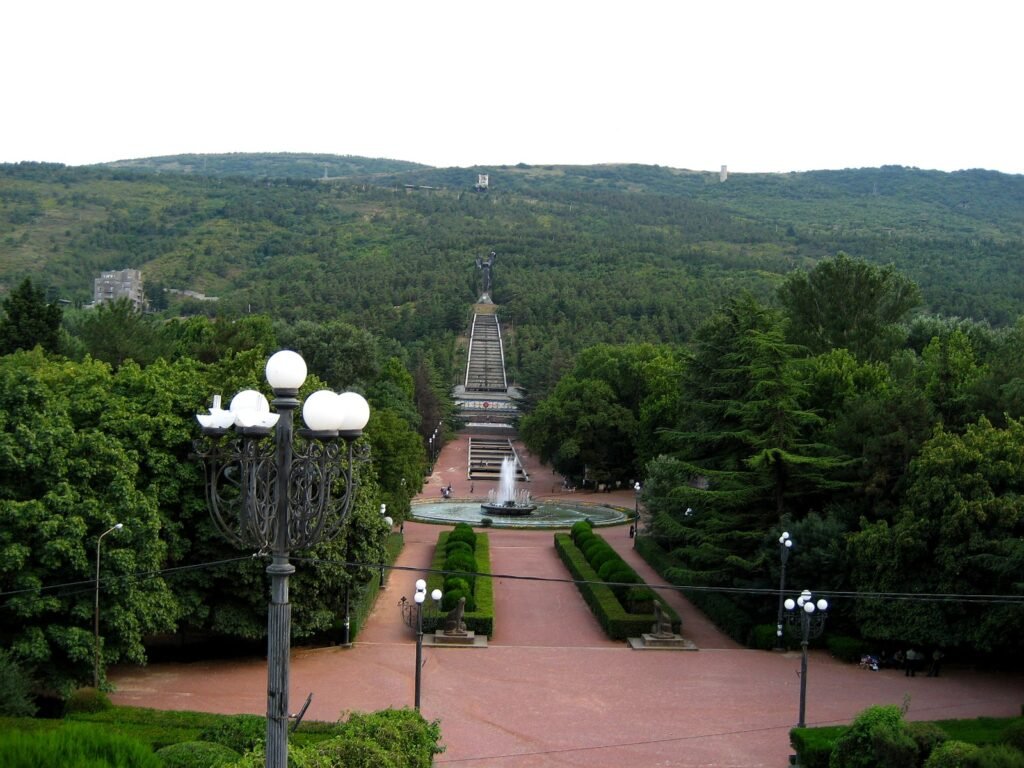
Vake park in Tbilisi
“You’ve arrived at a special moment,” a local artist named Nino told me while sipping chacha (Georgian brandy) at a hidden courtyard café. “Tbilisi stands at the edge of discovery – still authentic, still unspoiled by mass tourism, yet ready to share its treasures with those curious enough to look beyond the usual European destinations.”
Uncover unexplored paradise as you wander through winding lanes where orthodox churches stand beside ancient bathhouses, trendy wine bars, and cutting-edge art spaces. Few capitals in the world offer such a compelling mix of the ancient and avant-garde.
Tbilisi enjoys a moderate climate that makes year-round visits possible, but each season paints the city in different colors and moods.
Spring (April-June) blankets the city in blossoms, with comfortable temperatures ranging from 15-25°C (59-77°F). This season brought me some of my most cherished Tbilisi memories – picnicking in the botanical gardens while watching fruit trees burst into colorful life. The city feels especially vibrant as it emerges from winter, with locals enthusiastically filling outdoor cafés and parks.

Spring in Tbilisi
Fall (September-October) transforms Tbilisi with golden hues as vineyard harvests in nearby regions bring wine festivals and celebrations. The crisp autumn air carries the scent of churchkhela (traditional candle-shaped candies) being prepared on street corners, while temperatures remain pleasant enough for extensive exploration on foot.

autumn months in georgia tbilisi
Summer (July-August) brings warmer weather (sometimes exceeding 30°C/86°F) that’s perfect for enjoying Tbilisi’s outdoor restaurants and nearby mountain escapes.
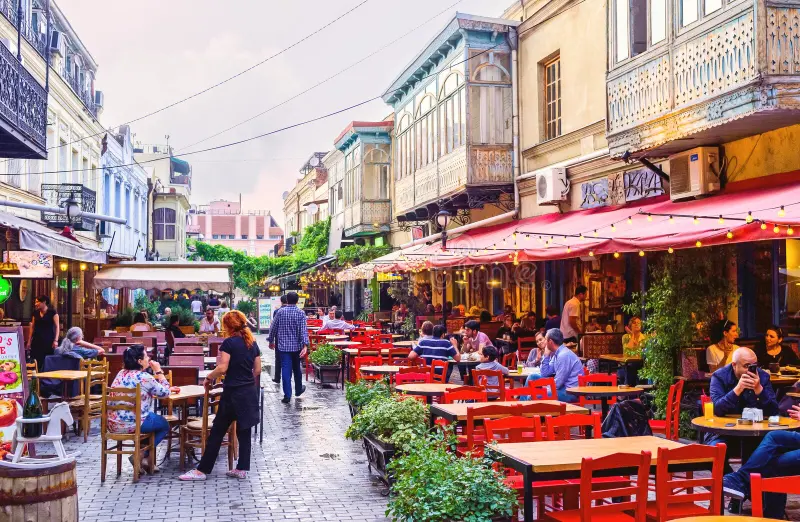
the long summer terrace in tbilisi
Winter (November-March) offers a different charm with occasional light snowfall creating a magical atmosphere around the city’s domes and spires, plus significantly fewer tourists.

winter time in georgia tbilisi
| Season | Advantages | Potential Drawbacks |
|---|---|---|
| Spring | Blooming landscapes, pleasant temperatures, Easter celebrations | Occasional rain showers |
| Summer | Vibrant nightlife, nearby nature escapes, longer days | Peak tourist season, higher prices |
| Fall | Wine harvest festivals, gorgeous colors, perfect hiking weather | Shorter daylight hours |
| Winter | Holiday decorations, snow-capped views, lowest prices | Colder temperatures, some attractions with limited hours |
The soul of Georgia reveals itself through Tbilisi’s rich cultural tapestry. One evening, I found myself in a small basement restaurant in the Sololaki district, where what started as dinner spontaneously evolved into a supra (traditional Georgian feast). A local polyphonic choir began performing, their haunting harmonies reverberating through the stone walls while our host encouraged everyone to join in toasting with amber wine from clay qvevri vessels.

Sipping a toast to amber wine made from “Kvevri” pottery.
“Georgian culture is not something you observe – it’s something you participate in,” explained Giorgi, a winemaker who invited me to join his family’s Sunday gathering. “Our traditions have survived centuries of invasions because they’re lived, not just preserved in museums.”
Discover magical hidden experiences at Tbilisi’s incredible array of cultural venues:
Don’t miss the opportunity to experience traditional Georgian dance performances, where gravity-defying male dancers spin and leap with sword-like precision while women seem to float across the stage. The Sukhishvili National Ballet offers regular performances that will leave you breathless.
Walking through Tbilisi is like navigating through living history pages. The city has been destroyed and rebuilt 29 times throughout its tumultuous past, creating fascinating architectural layers that tell stories of resilience and reinvention.
As dawn broke over the city, I climbed the winding path to the 4th-century Narikala Fortress, where Persian, Byzantine, Ottoman, and Russian influences all left their mark. The panoramic views revealed Tbilisi’s historical narrative written in stone – ancient Georgian Orthodox churches with conical domes, Persian-style bathhouses, European neoclassical buildings, and Soviet modernist structures all coexisting in remarkable harmony.
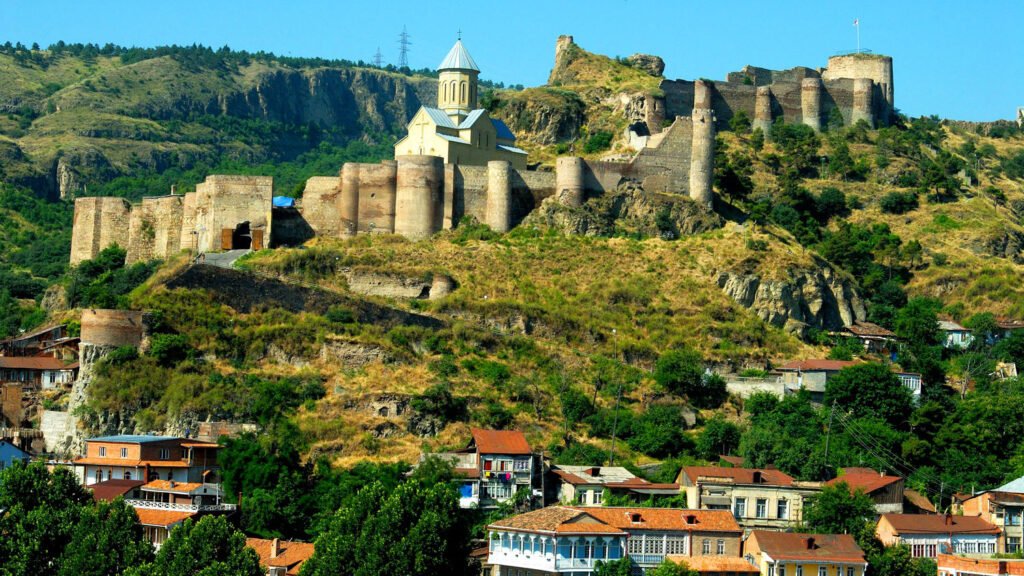
Narikala Fortress
Explore untouched treasures in Tbilisi’s most significant historical sites:
“Each stone in Tbilisi has witnessed centuries of stories,” noted Tamara, a local historian who guided me through the less-visited historical sites. “What makes our city unique is how these different historical influences haven’t erased each other but instead created something entirely new.”
While Tbilisi captivates with its urban charm, nature’s majesty is never far away. The city’s geographical position in a river valley surrounded by hills creates countless opportunities to connect with the natural world.
One crisp morning, I ventured just 20 minutes from downtown to Turtle Lake (Kus Tba), where locals swim in summer and hike year-round. The path wound through pine forests, with panoramic views of the city unfolding at various viewpoints. The scent of wild thyme and the melody of songbirds created a sensory experience that felt worlds away from the city bustle.
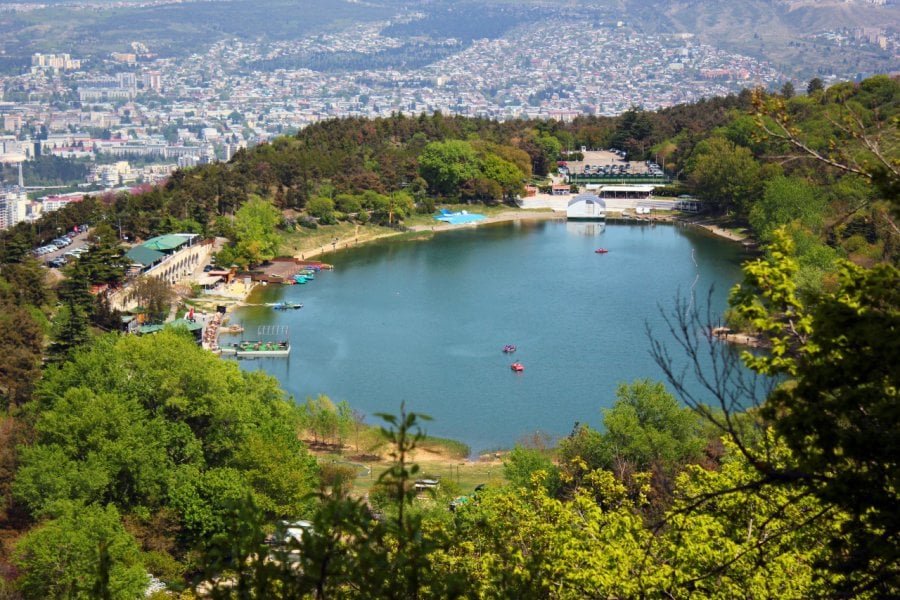
Turtle Lake (Kus Tba)
Find your secret paradise in these natural escapes near Tbilisi:
For wildlife enthusiasts, the nearby Tbilisi National Park harbors remarkable biodiversity including deer, lynx, and over 100 bird species. “Georgia sits at a biological crossroads, just as it does culturally,” explained Nana, an environmental guide who showed me hidden trails. “Within a day’s journey from Tbilisi, you can experience steppes, semi-deserts, alpine meadows, and subtropical zones.”
If I had to choose one sense through which to experience Tbilisi, it might be taste. Georgian cuisine represents one of the world’s oldest and most distinctive culinary traditions, with recipes passed down through generations and techniques refined over centuries.
My first encounter with khachapuri (cheese-filled bread) at a tiny bakery near the Dry Bridge Market was nothing short of revelatory – watching the baker pull the boat-shaped Adjaruli khachapuri from a tone (clay oven), then crack an egg on top of the molten cheese and add a generous pat of butter. “This is Georgian soul food,” she smiled as she handed me the steaming creation, the aroma of fresh bread and melted sulguni cheese making my mouth water instantly.

khachapuri (cheese-filled bread)
Discover taste sensations through these unmissable culinary experiences:
“Food is our way of showing love,” explained Ketevan, who welcomed me into her home to learn family recipes. “When Georgians say ‘come eat,’ they mean ‘let me show you who we are.'” This philosophy explains the legendary Georgian hospitality that transforms meals into memorable cultural experiences.
While Tbilisi’s main attractions deserve their reputation, the city reveals its most authentic charms in less-traveled neighborhoods and locally beloved spots. These undiscovered gems offer glimpses into everyday Georgian life and culture.
During my third day in Tbilisi, I happened upon a celebration in the courtyard of a crumbling Art Nouveau building in the Plekhanov district. Families had brought tables into the shared space, children played traditional games, and an elderly man performed folk songs on a panduri (Georgian string instrument). Though I entered as a stranger, within minutes I was seated at a table with a glass of homemade wine and a plate of fresh tomatoes, cucumbers, and herbs picked that morning.

panduri (Georgian string instrument)
“These courtyards are the heart of Tbilisi,” explained Maya, who had lived in the building for 60 years. “Behind these facades are communities where everyone knows each other, where traditions continue as they have for generations.”
Explore these local favorites that most tourists miss:
Tbilisi offers lodging options as diverse as the city itself, from luxury hotels housed in historic buildings to family-run guesthouses where hosts treat you like relatives.
During my stay, I experienced both ends of the spectrum. At the meticulously restored Stamba Hotel, housed in a former Soviet printing house, industrial elements blend with luxurious touches and a world-class contemporary art collection. In contrast, my stay at a family guesthouse in the Vera neighborhood included homemade breakfast on a vine-covered balcony and heartfelt conversations with three generations of the family.
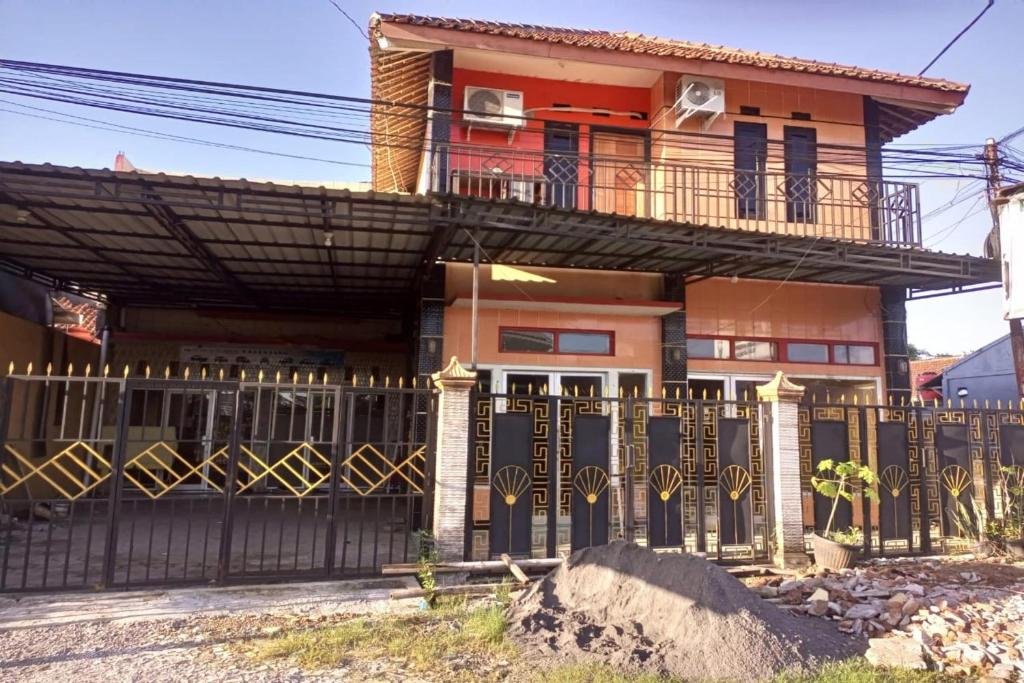
family guesthouse in the Vera
| Accommodation Type | Price Range (USD) | Benefits |
|---|---|---|
| Luxury Hotels | $150-300+ | Historic architecture, premium amenities, central locations |
| Boutique Hotels | $80-150 | Unique design, personalized service, cultural authenticity |
| Guesthouses | $30-80 | Home-cooked meals, local insights, family atmosphere |
| Hostels | $10-30 | Social atmosphere, budget-friendly, often in historic buildings |
| Apartment Rentals | $40-200 | Privacy, kitchen facilities, residential neighborhoods |
“What makes staying in Tbilisi special isn’t just the buildings, but the people,” noted David, who transformed his family home into a boutique guesthouse. “We don’t just provide a bed – we share our culture, our stories, our Tbilisi with our guests.”
Navigating Tbilisi combines modern convenience with delightful old-world charm. The city’s compact historical center invites exploration on foot, while an efficient public transportation system connects outlying districts.
I found Tbilisi’s metro system surprisingly elegant, with stations adorned with Soviet-era mosaics and chandeliers. For just 1 GEL (about $0.30), you can travel across the city quickly while enjoying these underground art galleries. The newly implemented bus system complements the metro, with clear maps and electronic displays at stops.
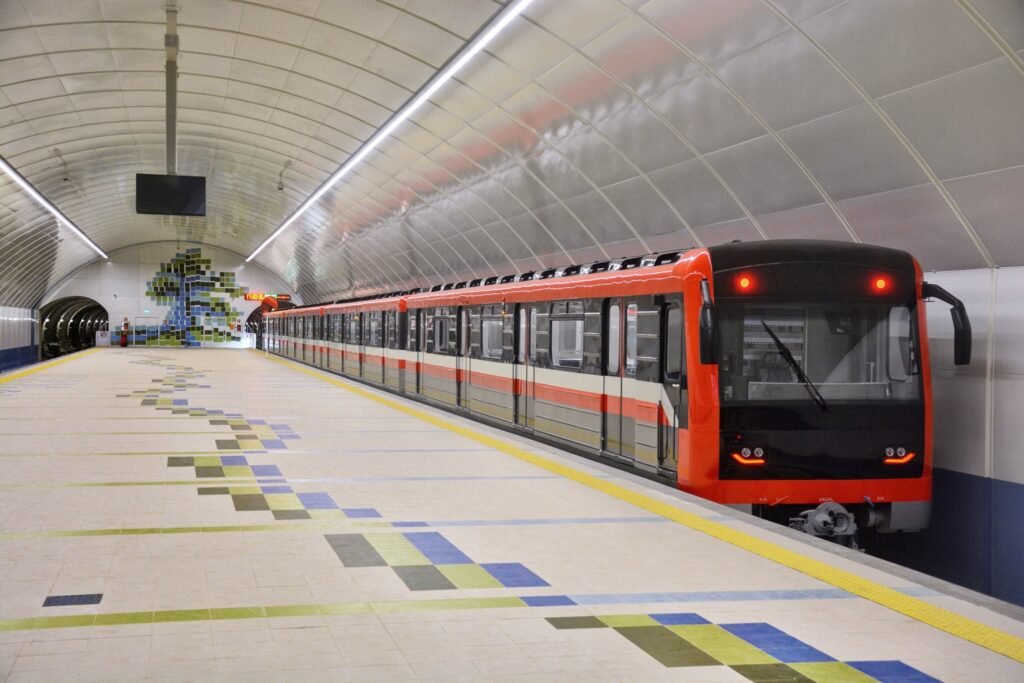
Tbilisi’s metro
For a more atmospheric journey, the aerial tramway provides a spectacular route between Rike Park and Narikala Fortress, offering breathtaking views for just 2.5 GEL (less than $1). Meanwhile, taxis are affordable and plentiful – though I recommend using apps like Bolt or Yandex for fair pricing and avoiding language barriers.
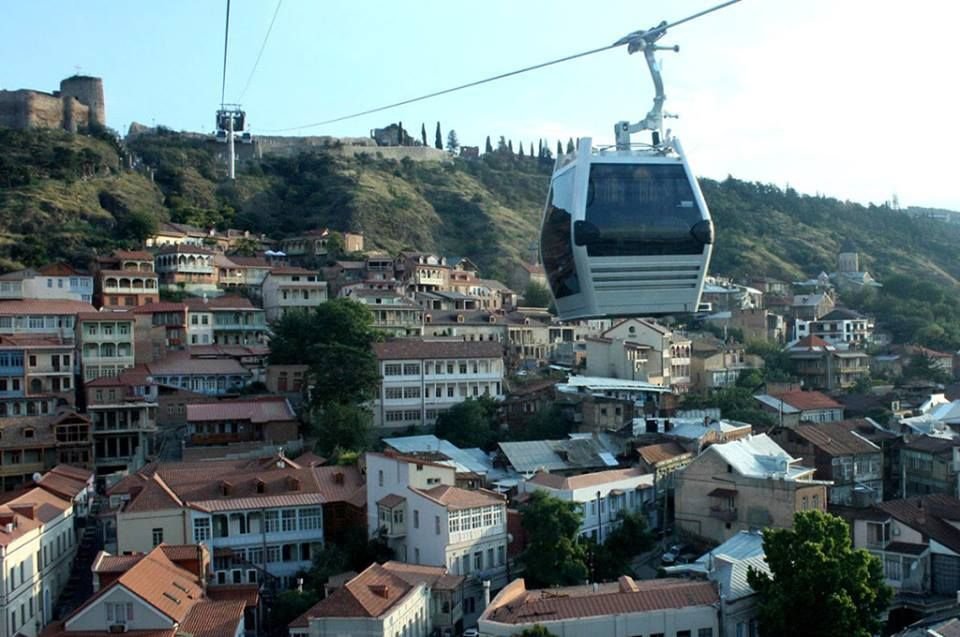
aerial tramway
Getting from Tbilisi International Airport to the city center is straightforward with bus #37 running 24/7 (1 GEL), or taxis available for around 25-30 GEL ($10-12). For day trips to nearby attractions, marshrutkas (shared minibuses) offer authentic local transportation experiences at minimal cost, departing from various stations depending on your destination.

bus #37 -Getting from Tbilisi International Airport to the city center
“Tbilisi is best experienced by mixing transportation modes,” suggested a local urban planner I met. “Walk the historic districts, take the funicular up Mtatsminda Mountain, ride the metro across town, then perhaps a taxi back to your accommodation – each mode reveals different aspects of the city.”
Tbilisi welcomes visitors of all ages with attractions that engage children’s curiosity while providing enjoyable experiences for adults as well. Discover perfect family holiday ideas throughout the city.
One afternoon, I observed a Georgian family at the Museum of Illusions, where children and parents alike delighted in mind-bending visual puzzles and optical illusions. Later, at Mtatsminda Park, generations came together enjoying everything from carousels to panoramic views and hiking trails.

Museum of Illusions
Engage your family with these kid-friendly activities:
Georgian culture inherently values family experiences, making children welcome nearly everywhere. “In Georgia, children are never seen as an inconvenience,” explained a local mother I met at a traditional restaurant where staff entertained her toddler while she enjoyed her meal. “We believe meals, celebrations, and daily life should include all generations.”
Creating the ideal Tbilisi experience requires balancing the city’s historical treasures, cultural offerings, and natural wonders. Based on my experiences, here’s a framework to help you plan your travel adventure:
“The biggest mistake travelers make is rushing through Tbilisi,” warned Nikoloz, a longtime resident who hosts cultural walks. “This is a city that reveals itself slowly, through unexpected encounters and moments of serendipity.”
Consider timing your visit around cultural events like Tbilisoba (October), when the city celebrates its founding with open-air concerts, traditional crafts demonstrations, and food festivals throughout the streets. The New Wine Festival (May) and Tbilisi Jazz Festival (July) also transform the city with special energy and activities.
As my time in Tbilisi drew to a close, I found myself sitting on a bench in Rike Park, watching the sunset paint the Old Town in warm golden hues. The Peace Bridge sparkled with thousands of LED lights, while the ancient Metekhi Church stood silhouetted against the darkening sky – a perfect visual metaphor for this city where past and future engage in constant, beautiful dialogue.
Uncover your own hidden paradise in Tbilisi, where every cobblestone lane might lead to an architectural marvel, every courtyard potentially hides a family winery, and every conversation could result in a friendship or invitation. This is a city that rewards the curious traveler with authentic experiences that feel increasingly rare in our globalized world.
Whether you seek cultural immersion, historical understanding, culinary adventures, or simply the joy of discovering a destination still crafting its tourism identity, Tbilisi offers riches beyond measure. As my Georgian friend Tamara said while sharing a farewell toast: “In Tbilisi, you arrive as a guest, but leave as family – and family always returns.”
Ready to experience Tbilisi’s magic for yourself? Let Travel Go Easy help you plan the perfect Georgian adventure with our customized flight bookings, accommodation options, and transportation services. From airport transfers to car rentals during your stay, we’ll ensure your Tbilisi experience is as seamless as it is unforgettable.
This exclusive article is copyright protected and created specifically for travelgoeasy.net. Unauthorized reproduction or distribution is prohibited.


